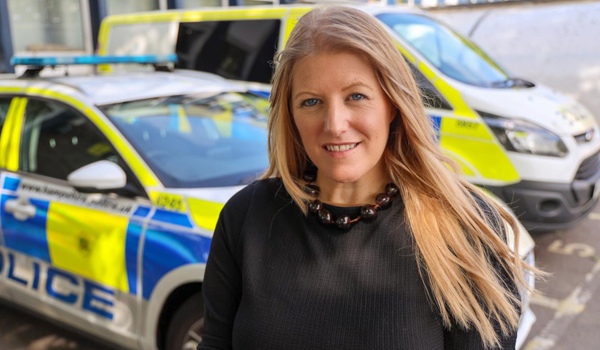Hampshire and Isle of Wight Constabulary good at protecting the vulnerable, but must continue to improve response to the public
Hampshire and Isle of Wight Constabulary is good at protecting vulnerable people, but it must continue to improve how quickly it responds emergency and non-emergency calls, the police inspectorate has said.
His Majesty’s Inspectorate of Constabulary and Fire and Rescue Services (HMICFRS) graded Hampshire and Isle of Wight Constabulary’s performance across eight areas of policing. It found the constabulary was ‘good’ in two areas and ‘adequate’ in six areas.
Police and crime commissioner (PCC) Donna Jones said the report marked “a major step forward since the previous review”.
The latest PEEL report finds the force has no areas requiring improvement, making it one of only five recently inspected forces nationally to achieve this status.
HMICFRS said that the constabulary is good at protecting vulnerable people and works well with partners within the multi-agency safeguarding hub to keep those at risk safe. Inspectors highlighted the constabulary’s innovative safeguarding training, which is provided to both staff and partners and has been assessed as best practice by the College of Policing.
Since the constabulary’s last inspection, it has also taken steps to improve how it communicates with communities to identify problems and gather intelligence. As well as this, it is working effectively in partnership with a wide range of other organisations on problem-solving, crime prevention and early intervention.
Inspectors found that the constabulary had improved the quality of its investigations. This has resulted in thorough investigations where investigators look for opportunities to bring offenders to justice, even when victims are unwilling to proceed. However, the number of crimes solved following investigations remains low and there is still more to do to achieve positive outcomes for victims.
The inspectorate also found that the constabulary does not always answer calls or attend calls for service as quickly as it should, which can cause victims to lose confidence and disengage with the process. However, inspectors noted that the constabulary had made significant sustainable improvements to its call answering since its previous inspection.
His Majesty’s Inspector of Constabulary Roy Wilsher said: “I am pleased with some aspects of Hampshire and Isle of Wight Constabulary’s performance in keeping people safe, reducing crime and providing victims with an effective service, although there are areas where it can improve.
“The constabulary works effectively with other organisations to keep vulnerable people safe and tackle the behaviour of perpetrators. It uses innovative digital processes that help identify risk to vulnerable people who are victims at the earliest opportunity.
“While the constabulary’s move to a new area model has resulted in better focus and control of staff and assets at a local level, key areas such as response, neighbourhood and investigative policing have been severely stretched at times. Although, I was pleased to find that the constabulary was effective at building, supporting and protecting its workforce.
“I hope that the operational changes the constabulary is making will help it better meet the needs of the public and its workforce and I will be monitoring its progress closely.”
Ms Jones welcomed the findings, which she said “reflect her priorities of delivering a best-in-class police service the public expects: a force which strives to carry out timely investigations; delivers better neighbourhood policing, and provides improved support for victims of crime”.
The PCC said: “This report shows the force is getting stronger, more responsive, and more in tune with public expectations. Since the last inspection, where several areas needed improvement, the constabulary has made real progress.”
The inspection highlights include:
- A geographical policing model that has strengthened ties between officers and local communities, with local bobbies and more police stations open to the public;
- Improving investigative capabilities leading to better outcomes for victims;
- Stronger at protecting vulnerable people, and tackling violence against women and girls;
- Tough approach on tackling anti-social behaviour and retail crime;
- Effective partnerships and innovation in local crime prevention and victim services; and
- Significant improvements in emergency call answering times, with 95.5 per cent of 999 calls answered within ten seconds as of January 2025, exceeding required standards.
The PCC also noted the importance of her direct oversight in areas such as financial governance and the constabulary’s estate strategy, both of which were recognised for their effectiveness in the report.
“Every pound of taxpayers’ money must be spent wisely,” said Ms Jones. “My core duty as commissioner is to engage with the public on what matters to them and ensure the constabulary delivers. That is why I supported the new geographical policing model, introduced my ‘Local Bobby’ scheme ahead of any other police force in the country, and continue to open more police stations to the public.
“These changes have only been made possible by sound financial management and investment in the police estate to increase visibility and provide the best environments possible for police-community relations.
“Areas for improvement remain and I continue to challenge and support the chief constable to expand neighbourhood visibility, tackle crime, and make sure every victim gets a fast, fair and effective response – every time they call for help.
“Hampshire and Isle of Wight residents deserve the best of British policing; a modern police force rooted in tradition.”


